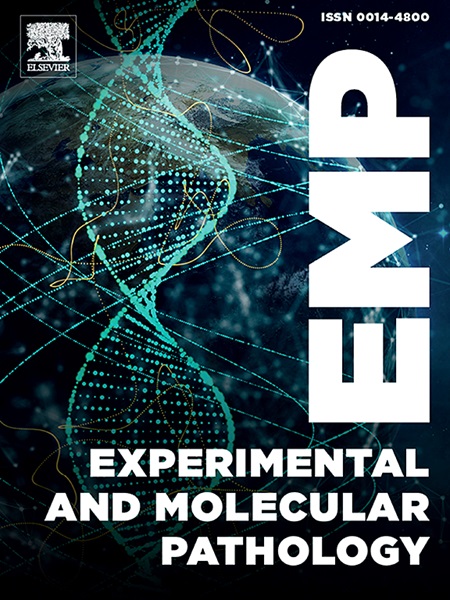Gut-lung Axis mediates asthma pathogenesis: Roles of dietary patterns and their impact on the gut microbiota
IF 3.7
4区 医学
Q2 PATHOLOGY
引用次数: 0
Abstract
The gut-lung axis, a vital signaling network linking the gastrointestinal and pulmonary systems, regulates immune responses and the progression of respiratory diseases. Nutritional components can modulate the gut microbiome and regulate the synthesis of critical intestinal microbial metabolites, which are essential for maintaining immune homeostasis and supporting respiratory health. Conversely, poor dietary habits exacerbate asthma and other respiratory conditions through the modulation of systemic inflammation and immune responses. Dietary interventions, such as the Mediterranean diet, are reported to restore microbial balance and improve respiratory health by increasing the production of anti-inflammatory metabolites, potentiating immune responses, and preserving epithelial barrier integrity. In contrast, Western dietary patterns, which are characterized by high fat and low fiber intake, disrupt microbial diversity, resulting in increased levels of pro-inflammatory metabolites that aggravate airway inflammation and asthma severity. This review aimed to elucidate the mechanisms underlying the regulatory effects of gut microbes and their metabolites on asthma. Additionally, previous findings related to the gut-lung axis have been summarized, providing insights into potential therapeutic strategies for asthma management.
肠肺轴介导哮喘发病机制:饮食模式的作用及其对肠道微生物群的影响
肠-肺轴是连接胃肠道和肺系统的重要信号网络,调节免疫反应和呼吸系统疾病的进展。营养成分可以调节肠道微生物群,调节关键肠道微生物代谢物的合成,这对维持免疫稳态和支持呼吸健康至关重要。相反,不良的饮食习惯通过调节全身炎症和免疫反应加重哮喘和其他呼吸系统疾病。据报道,饮食干预,如地中海饮食,可以通过增加抗炎代谢物的产生、增强免疫反应和保持上皮屏障的完整性来恢复微生物平衡和改善呼吸健康。相比之下,西方饮食模式以高脂肪和低纤维摄入为特征,破坏了微生物多样性,导致促炎代谢物水平升高,加重了气道炎症和哮喘的严重程度。本文旨在阐明肠道微生物及其代谢物对哮喘调节作用的机制。此外,总结了先前与肠-肺轴相关的研究结果,为哮喘管理的潜在治疗策略提供了见解。
本文章由计算机程序翻译,如有差异,请以英文原文为准。
求助全文
约1分钟内获得全文
求助全文
来源期刊
CiteScore
8.90
自引率
0.00%
发文量
78
审稿时长
11.5 weeks
期刊介绍:
Under new editorial leadership, Experimental and Molecular Pathology presents original articles on disease processes in relation to structural and biochemical alterations in mammalian tissues and fluids and on the application of newer techniques of molecular biology to problems of pathology in humans and other animals. The journal also publishes selected interpretive synthesis reviews by bench level investigators working at the "cutting edge" of contemporary research in pathology. In addition, special thematic issues present original research reports that unravel some of Nature''s most jealously guarded secrets on the pathologic basis of disease.
Research Areas include: Stem cells; Neoangiogenesis; Molecular diagnostics; Polymerase chain reaction; In situ hybridization; DNA sequencing; Cell receptors; Carcinogenesis; Pathobiology of neoplasia; Complex infectious diseases; Transplantation; Cytokines; Flow cytomeric analysis; Inflammation; Cellular injury; Immunology and hypersensitivity; Athersclerosis.

 求助内容:
求助内容: 应助结果提醒方式:
应助结果提醒方式:


